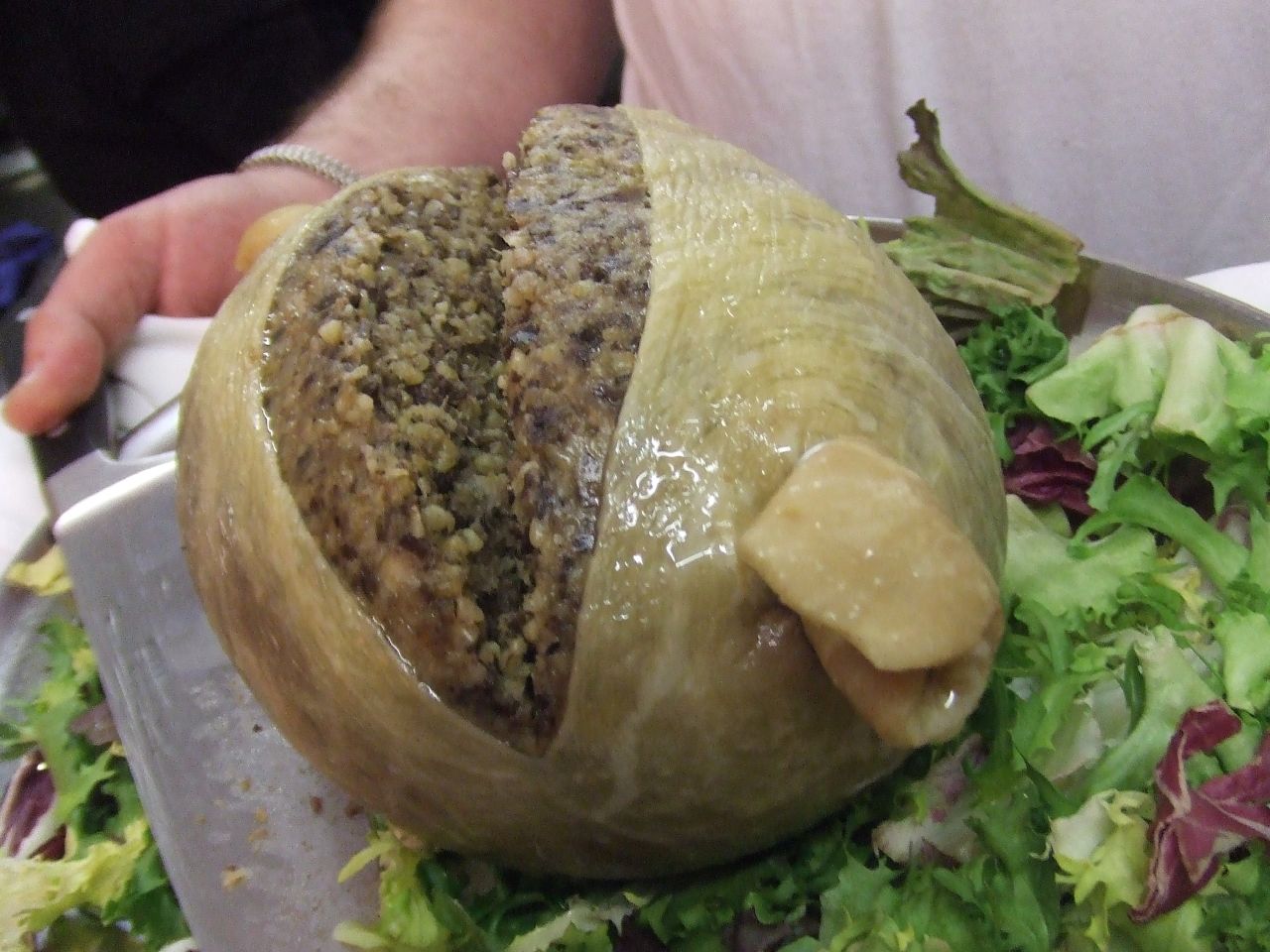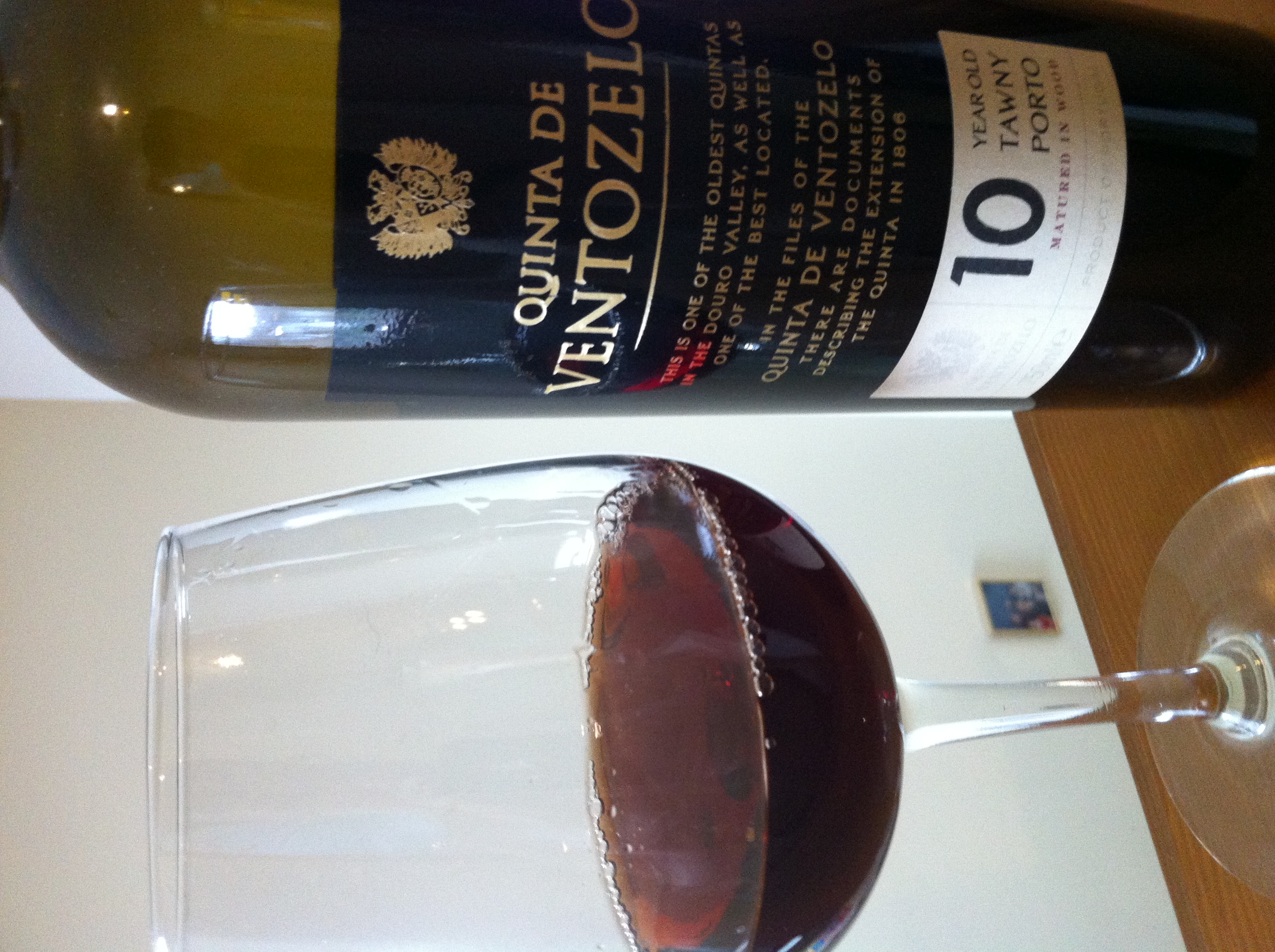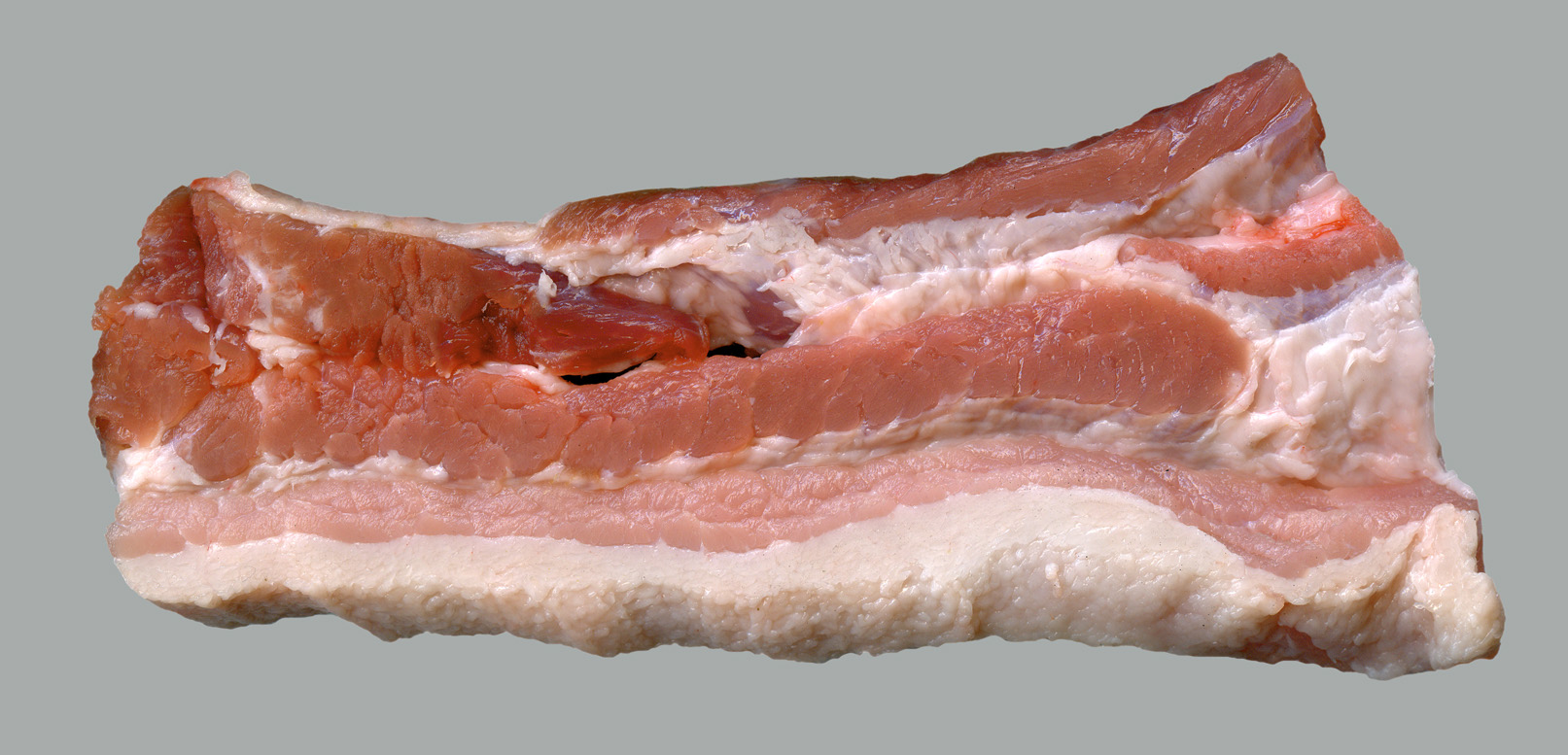|
Pudim Abade De Priscos
Abbot of Priscos pudding ( pt, Pudim Abade de Priscos) is a typical Portuguese dessert, a rich crème caramel pudding created by Father Manuel Joaquim Machado Rebelo, the Abbot of Priscos, in the 19th century. The pudding is unique in that it contains bacon and a very large number of egg yolks — fifteen in total. According to its creator, "The pudding is rather easy to make, but difficult to get right." In 2011, the Abbot of Priscos pudding was one of the runners-up in the Seven Wonders of Portuguese Gastronomy competition. Method of preparation Sugar is mixed in water with lemon zest, a cinnamon stick, and a piece of fresh bacon. The syrup is brought to a boil and then passed through a strainer into a bowl with fifteen egg yolks and a small glass of tawny or vintage Port. The resulting mixture is then cooked in a bain-marie A bain-marie (; also known as a water bath or double boiler), a type of heated bath, is a piece of equipment used in science, industry, and cooki ... [...More Info...] [...Related Items...] OR: [Wikipedia] [Google] [Baidu] |
Portugal
Portugal, officially the Portuguese Republic ( pt, República Portuguesa, links=yes ), is a country whose mainland is located on the Iberian Peninsula of Southwestern Europe, and whose territory also includes the Atlantic archipelagos of the Azores and Madeira. It features the westernmost point in continental Europe, and its Iberian portion is bordered to the west and south by the Atlantic Ocean and to the north and east by Spain, the sole country to have a land border with Portugal. Its two archipelagos form two autonomous regions with their own regional governments. Lisbon is the capital and largest city by population. Portugal is the oldest continuously existing nation state on the Iberian Peninsula and one of the oldest in Europe, its territory having been continuously settled, invaded and fought over since prehistoric times. It was inhabited by pre-Celtic and Celtic peoples who had contact with Phoenicians and Ancient Greek traders, it was ruled by the Ro ... [...More Info...] [...Related Items...] OR: [Wikipedia] [Google] [Baidu] |
Manuel Joaquim Machado Rebelo
Manuel Joaquim Machado Rebelo (29 March 1834 – 24 September 1930), most commonly known as the Abbot of Priscos ( pt, Abade de Priscos), was a Portuguese priest who is best known as a famous amateur cook and a gastronomic reference in 19th-century Portugal. He is today mostly remembered as the creator of ''Pudim Abade de Priscos'', a classic of Portuguese cuisine. Biography Manuel Joaquim Machado Rebelo was born on 29 March 1834, in the civil parish of Santa Maria de Turiz, Vila Verde, the son of Manuel José Machado and Teresa Angélica Rebelo, landowners and proprietors of the Quinta do Arco estate. He had two brothers, Luís Manuel Machado Rebelo, also a clergyman, and Francisco José Machado Rebelo, whose daughter Maria Amélia Machado Rebelo (d. 22 May 1954) lived with uncle Manuel Joaquim, and was devoted to him like a father. He studied Theology in the , in Braga, and, after being ordained, celebrated his first Mass on 27 January 1861. He was made a curate of , in Braga, ... [...More Info...] [...Related Items...] OR: [Wikipedia] [Google] [Baidu] |
Dessert
Dessert is a course that concludes a meal. The course consists of sweet foods, such as confections, and possibly a beverage such as dessert wine and liqueur. In some parts of the world, such as much of Greece and West Africa, and most parts of China, there is no tradition of a dessert course to conclude a meal. The term ''dessert'' can apply to many confections, such as biscuits, cakes, cookies, custards, gelatins, ice creams, pastries, pies, puddings, macaroons, sweet soups, tarts, and fruit salad. Fruit is also commonly found in dessert courses because of its naturally occurring sweetness. Some cultures sweeten foods that are more commonly savory to create desserts. Etymology The word "dessert" originated from the French word ''desservir,'' meaning "to clear the table". Its first known use in English was in 1600, in a health education manual entitled ''Naturall and artificial Directions for Health'', written by William Vaughan. In his book ''Sweet Invention: A H ... [...More Info...] [...Related Items...] OR: [Wikipedia] [Google] [Baidu] |
Pudding
Pudding is a type of food. It can be either a dessert or a savoury (salty or spicy) dish served as part of the main meal. In the United States, ''pudding'' means a sweet, milk-based dessert similar in consistency to egg-based custards, instant custards or a mousse, often commercially set using cornstarch, gelatin or similar coagulating agent such as Jell-O. The modern American meaning of pudding as dessert has evolved from the original almost exclusive use of the term to describe savoury dishes, specifically those created using a process similar to that used for sausages, in which meat and other ingredients in mostly liquid form are encased and then steamed or boiled to set the contents. In the United Kingdom and some of the Commonwealth countries, the word ''pudding'' is used to describe sweet and savoury dishes. Savoury puddings include Yorkshire pudding, black pudding, suet pudding and steak and kidney pudding. Unless qualified, however, pudding usually means dessert ... [...More Info...] [...Related Items...] OR: [Wikipedia] [Google] [Baidu] |
Port Wine
Port wine (also known as vinho do Porto, , or simply port) is a Portuguese wine, Portuguese fortified wine produced in the Douro, Douro Valley of Norte, Portugal, northern Portugal. It is typically a sweetness of wine, sweet red wine, often served with dessert wine, dessert, although it also comes in dry, semi-dry, and white varieties. Other port-style fortified wines are produced outside Portugalin Argentina, Australia, Canada, France, India, South Africa, Spain, and the United Statesbut under the European Union Protected Designation of Origin guidelines, only wines from Portugal are allowed to be labelled "port". Region and production Port is produced from grapes grown and processed in the demarcated Douro region.Porter, Darwin & Danforth Price (2000) ''Frommer's Portugal'' 16th ed., p. 402. IDG Books Worldwide, Inc. The wine produced is then fortified by the Mutage, addition of a neutral grape spirit known as aguardente#Portugal, aguardente to stop the Fermentation (w ... [...More Info...] [...Related Items...] OR: [Wikipedia] [Google] [Baidu] |
Presunto
''Presunto'' () is dry-cured ham from Portugal, similar to Italian ''prosciutto crudo'' or Spanish ''jamón''. Among the wide variety of ''presuntos'' in Portugal, the most famous are ''presunto'' from Chaves, produced in the north of Portugal, and that from the Alentejo, in the south, made from local Alentejano pigs. Several varieties of ''presunto'' are protected by European law with geographical indications. Etymology The word is from Vulgar Latin past participle ''persunctus'', ultimately from the verb ''sugo'', 'to suck', and is unrelated to identical words in Italian and Spanish coming from the also past participle ''praesumptus'', ultimately from ''sumo'', 'to (under)take, occupy' (see wikt:presunto). ''Presunto'' PDO and IGP In March 2014, six varieties of ''presunto'' were protected by European law registered with protected designation of origin: * ''Presunto de Barrancos'' (PGO) *''Presunto do Alentejo'' and ''Paleta do Alentejo'' (PDO) * ''Presunto de Barroso ... [...More Info...] [...Related Items...] OR: [Wikipedia] [Google] [Baidu] |
Portuguese Cuisine
The oldest known book on Portuguese cuisine, entitled ''Livro de Cozinha da Infanta D. Maria de Portugal'', from the 16th century, describes many popular dishes of meat, fish, poultry and others. ''Culinária Portuguesa'', by António-Maria De Oliveira Bello, better known as Olleboma; was published in 1936. Despite being relatively restricted to an Atlantic, Celtic sustenance, the Portuguese cuisine also has strong French and Mediterranean influences. The influence of Portugal's spice trade in the East Indies, Africa, and Americas is also notable, especially in the wide variety of spices used. These spices include ''piri piri'' (small, fiery chili peppers), white pepper, black pepper, saffron, paprika, clove, allspice, cumin, cinnamon and nutmeg are used in meat, fish or multiple savoury dishes from Continental Portugal, the Azores and Madeira islands. Cinnamon, vanilla, lemon zest, orange zest, aniseed, clove and allspice are used in many traditional desserts and s ... [...More Info...] [...Related Items...] OR: [Wikipedia] [Google] [Baidu] |
Crème Caramel
Crème caramel (), flan, caramel pudding or caramel custard is a custard dessert with a layer of clear caramel sauce. History The origin of crème caramel (also known originally as flan) can be traced all the way back to the Roman Empire. Originally, this dish was called tiropatinam and it was made with eggs, milk and pepper and it was seasoned in its savoury version with fish, eel, and spinach, although there was also a sweet version with honey. It was in the early Middle Ages, in Spain, when they started using only the ingredients from which the original recipe is made today, and introduced caramelised sugar into the mixture and to call it flan, which comes from the proto-germanic 'flado'. In the late 20th century crème caramel was common in European restaurants. The food historian Alan Davidson speculates that this may have been because the dish could be prepared in bulk, in advance. Etymology of names In this context, ''crème'' in French means 'custard'. The names ''cr ... [...More Info...] [...Related Items...] OR: [Wikipedia] [Google] [Baidu] |
Pudding
Pudding is a type of food. It can be either a dessert or a savoury (salty or spicy) dish served as part of the main meal. In the United States, ''pudding'' means a sweet, milk-based dessert similar in consistency to egg-based custards, instant custards or a mousse, often commercially set using cornstarch, gelatin or similar coagulating agent such as Jell-O. The modern American meaning of pudding as dessert has evolved from the original almost exclusive use of the term to describe savoury dishes, specifically those created using a process similar to that used for sausages, in which meat and other ingredients in mostly liquid form are encased and then steamed or boiled to set the contents. In the United Kingdom and some of the Commonwealth countries, the word ''pudding'' is used to describe sweet and savoury dishes. Savoury puddings include Yorkshire pudding, black pudding, suet pudding and steak and kidney pudding. Unless qualified, however, pudding usually means dessert ... [...More Info...] [...Related Items...] OR: [Wikipedia] [Google] [Baidu] |
Priscos
Priscos is a Portugal, Portuguese parish, located in the municipality of Braga. The population in 2011 was 1,341, in an area of 3.65 km2. References Freguesias of Braga {{braga-geo-stub ... [...More Info...] [...Related Items...] OR: [Wikipedia] [Google] [Baidu] |
Bacon
Bacon is a type of salt-cured pork made from various cuts, typically the belly or less fatty parts of the back. It is eaten as a side dish (particularly in breakfasts), used as a central ingredient (e.g., the bacon, lettuce, and tomato sandwich (BLT)), or as a flavouring or accent (as in bacon bits in a salad). Bacon is also used for barding and larding roasts, especially game, including venison and pheasant, and may also be used to insulate or flavour roast joints by being layered onto the meat. The word is derived from the Proto-Germanic ''*bakkon'', meaning "back meat". Meat from other animals, such as beef, lamb, chicken, goat, or turkey, may also be cut, cured, or otherwise prepared to resemble bacon, and may even be referred to as, for example, " turkey bacon". Such use is common in areas with significant Jewish and Muslim populations as both religions prohibit the consumption of pork. Vegetarian bacons such as "soy bacon" also exist. Curing and smoking Be ... [...More Info...] [...Related Items...] OR: [Wikipedia] [Google] [Baidu] |
Público (Portugal)
''Público'' (; English: ''Public'') is a Portuguese daily national newspaper of record published in Lisbon, Portugal. History and profile ''Público'' was first published on 5 March 1990. The paper was founded by Sonae and is owned by the Sonae group. In 1992 Italian media company Repubblica International Holding SA, a subsidiary of Gruppo Editoriale L'Espresso, acquired 16.75% of the paper. ''Público'' is published in tabloid format and has its headquarters in Lisbon. The paper is known as a publication of the French school with extensive texts and few illustrations. Its first editor-in-chief was Vicente Jorge Silva, formerly sub-editor-in-chief at '' Expresso''. José Manuel Fernandes also served as the editor-in-chief of the paper. Since 2009 Bárbara Reis has served as the editor-in-chief. ''Público'' is one of the first Portuguese mainstream newspapers to have an online edition which was started in 1995. Its online edition was free and included almost all the arti ... [...More Info...] [...Related Items...] OR: [Wikipedia] [Google] [Baidu] |




